#abusive father
Text
my father, ordering me to do shit against my will: you're not doing it for ME! You're doing it for YOURSELF!!!
me, looking back year later: it was a lie. Every. Single. Damn. Thing. Was only for him. None of these things were meant for my benefit. It was coercion.
#abusive father#coercion#lies#child abuse#abusive parents#toxic parents#coerced labour#having children as free labour
112 notes
·
View notes
Text
hey. you. your abuser's emotions are not your burden. it is not your fault if they feel angry/sad/disappointed. especially when you still up for yourself. any negative feelings they have towards your reaction to your abuse are their problem, and their own doing. you are not a bad person if you don't try to make them feel better.
#softspoonie#abuse#abusive parents#abusive father#abusive parent#abusive relationship#abusive relationships#abuse survival#abuse survivor#trauma survival#trauma survivor#trauma#mental health
103 notes
·
View notes
Text
they tell you to reach out for help, then people just get mad at you when you do.
#my text#actually traumatized#actually cptsd#actually abused#actuallyabused#actually bullied#actually traumatised#tw parental abuse#parental abuse#sibling abuse#abusive father#abusive mother#actuallymentallyill#actually anxious#actually mentally ill#actually disabled#actually borderline#actually bpd#actuallytraumatized#bpd tag#bpdcore#bpd#tw cptsd#cptsd problems#cptsd recovery#cptsd life#cptsd vent#living with cptsd#just cptsd things#cptsd
72 notes
·
View notes
Text
Abuse comes in waves. So does pain.
You spent months being civil with each other, kind even. They do things for you, buy you clothes, groceries, say nice things and ask about your day. And you start to forget. You start to feel guilty. Why did I hate them? Why was I angry? Why did I want to leave? That was awfully mean of me. They need me. If I leave, they'll be all alone.
Then it all comes crashing down. One little thing lights up the flames and sparks a reaction. It happens fast, but feels like it lasts a lifetime. They say "things they didn't really mean", they "let anger get the best of them", and you're at the receiving end, scared, alone and not able to react.
And you start to remember. You place this memory with all the others, like a bunch of crystal ornaments on a shelf. You start noticing the patterns. You even make excuses for them. I was too loud, too aggressive, too mean. I deserved it. I deserve this.
Hours later, when you're safe and sound in your room, the reaction finally hits. You cry and sob, you want to scream but know you can't. You want to leave but have nowhere to go. You have no choice but to stay put and feel the pain. The pain from this moment and all the others that preceeded it. The pain from all the chances you had to leave but didn't take. The pain from all the instances you believed they changed.
And you know, once they wake up, it'll be like it never happened. Kind words and kind gestures, all over again. And you have no choice but to play along, otherwise who knows what might happen.
Every week. Every month. Every year. A new little crystal ornament for my collection. A new memory for me to obsess over and try to prove to myself that it wasn't that bad, that I barely got hurt, that it could've been worse.
I wonder how long it'll take for the next ornament to arrive. I wonder if I'll have enough space for it on the shelve.
#child abuse survivor#living with your abuser#abusive mother#abusive father#abusive parents#abusive relationship#verbal abuse#physical abuse#emotional abuse#narcissistic behavior#surviving narcissism#narcissist mother#narcissist parents#narc abuse
1K notes
·
View notes
Text
Six months ago, when the protagonist had first appeared in the middle of the villain’s compound, scrawny and half feral, the villain hadn’t thought much of it.
And then it happened again.
And again.
The villain thought something of it.
“Let me work with you,” they had begged. The villain was almost certain the protagonist was homeless. “Please, I have powers, I can—”
The villain said yes.
Maybe it had been whatever remnants were left of the villain’s stupid heart. Maybe it was the chocolate donut they had that morning. Maybe it was the desperation coming off the protagonist in waves.
Maybe they were just bored.
They paid it no mind.
The protagonist did have powers, but they were minor. The kind you see in small children, the first in a bloodline to mutate powers. Their great grand children would wield enough power to level buildings, be heroes and villains and everything in between. But for now, they sat in preschool classrooms and summoned the tiniest spark of flame.
The protagonist, trembling like a fawn, sweat slicking their brow, seemed to be one of those children. Albeit an older version.
Not useless, exactly. They had a startling affinity for picking locks—which explained the ability to get into the villain’s compound—a willingness to fight anyone, and a lack of fear. But they weren’t exactly the most useful sidekick the villain could have picked.
The villain wouldn’t trade them for anyone else, though.
Their stupid, half dead heart, it seemed, cared for the protagonist.
So, when the hero set out to kill the protagonist, the villain knew they would do anything to keep them safe.
They caught the hero’s hand, twisting to shove them backwards a step, and they felt rather than saw the protagonist wince.
“Violent today, aren’t we?”
The hero was seething, and it unsettled something in the villain. The hero was unstable, yes. But the villain had never seen them try to kill someone before; they hadn’t even considered the hero might try.
They dodged another blow, the hero’s power blasting apart a building behind them. Their spine prickled, and they dropped to avoid the next hit.
“Just itching to go to prison for homicide, hm?”
When the hero didn’t even attempt to respond to their half-assed banter, the villain’s gut roiled.
“Protagonist,” they said between breaths. “Leave. Now.”
“No.”
They managed to throw the hero to the ground, risking a glance at the protagonist. They were covered in dust, supersuit dirty and torn across one calf, but their feet remained planted, shoulders set. “You heard me. Go back to the compound—“
The protagonist’s eyes widened, and the villain knew they had turned away for too long.
The villain went down hard, ears ringing, as the hero shook out their fist.
“Stop it,” the protagonist’s voice cracked. They took a step forward, wavering like they weren’t sure if they should run or fight.
“Go,” the villain coughed, and the protagonist flinched. They rolled onto their back, struggling to stand as the hero’s power flickered dangerously.
The villain knew, innately, that the next hit would kill them.
The villain sucked in a painful breath.
The hero lunged.
And the protagonist, voice wrecked with fear, screamed, “Dad.”
The villain’s heart stuttered.
There was a flash of light.
In front of them, panting for air like they would never get enough, was the protagonist. The hero’s fist was planted against their chest still, and the villain could tell it had been a death blow. Anyone, even the villain, wouldn’t have survived.
And yet—
The protagonist stood, unharmed.
“Dad,” they said again, and the hero didn’t quite flinch, but it was close. “Stop.”
The silence was deafening.
Something in the hero’s jaw tightened.
“Move,” the hero said lowly. The protagonist didn’t falter.
“No.”
“Don’t make me say it again.”
“What exactly will you do to me if I don’t listen,” the protagonist gave a sharp laugh. “Hit me? You tried that already.”
The hero sucked in a breath.
“I am your—“
“You are my nothing,” the protagonist corrected. “Certainly not my father. You lost that right when I was eight.”
The villain managed to push themselves to their feet.
“That was stupid,” the villain murmured, but it didn’t have any heat to it. “You couldn’t have known that would work. You had no idea if you could survive a hit like that.”
The protagonist very pointedly did not turn around, shoulders tense.
“I did,” their voice was strained. “He lost the right to fatherhood when I was eight, remember?”
The hero didn’t say anything, but the villain thought that might have been shame creeping its way across their face.
Oh.
Oh.
The hero—
The villain had been harboring the child of the most powerful being on the planet for six months. A child the hero had tried to kill, or at the very least, hurt.
Their heart stuttered.
They had been harboring the most powerful being on the planet, their mind corrected. A drop of blood slid its way down their spine. Power grew with every generation, and with the hero already so powerful, any child they had would be something close to a god.
“You said you had mild telekinesis,” the villain said numbly. The protagonist half turned to look over their shoulder, eyes shiny.
“My mom,” the protagonist. “I got it from her. The rest…”
From the hero.
The protagonist scanned the villain’s face.
They were searching for signs of violence, the villain realized. The protagonist wasn’t afraid of the hero anymore; no, the protagonist had seen the worst they could do. But somehow, the protagonist had begun to care for the villain. And they were terrified the villain—the person they trusted the most—was going to hurt them over a secret. The villain could see it all, scrawled across the protagonist’s face clear as day.
The villain was going to kill the hero. Painfully.
“Protagonist,” the villain kept their voice even. Gentle. Slow. “I’m not mad. And I’m not going to hurt you.” Their eyes slipped past to the protagonist to the hero.
“Him, however, I will be.”
The protagonist worried their lip between their teeth, and the villain watched as their power—their true power—sparked along their shoulder blades.
The villain stepped forwards—
“Don’t,” it was little more than a whisper.
The villain stopped.
The protagonist slid in front of the villain once more. “Just,” they raised a hand, as if taking a moment to choose their next words. “Stay.”
The villain stayed.
When the protagonist’s attention turned back to the hero, it was bloodthirsty. It spoke of war, and hatred, and revenge.
“You’re going to leave,” the protagonist’s voice was sharp enough to cut skin. “And you aren’t going to come back. I don’t care if it’s because you don’t want to, or because you know that if you do, I will kill you and I’ll like it—you won’t come back.”
The hero swallowed.
“The city needs me.”
“You are a plague to this city, and I am ridding it of you. Get. Out.”
The hero stumbled a step backwards, as if they had been hit. Their expression twisted.
“You wouldn’t.”
“I would,” the protagonist seethed.
They all knew the protagonist meant it.
The hero was halfway down the block, news vans and reporters scrambling their way onto the scene with cameras raised, when the protagonist called after them.
“Oh, and Dad?” The cameras snapped to them, and the protagonist grinned. It was vicious—it looked like the villain’s. “Parents who abuse their children don’t get to be heroes. Especially not you.”
They waited a beat, two, three.
The press exploded.
Above the din, power crackling around them, the protagonist mouthed two words.
“I win.”
#writing#writing community#angst#snippet#heroes and villains#hero whumpee#hero whumper#good villain#protagonist#hidden powers#betrayal#abusive father#abusive hero#fic writing#ficlet#writing prompt#hurt/comfort#hero turned villain#villains and heroes#protagonist x villain#writblr#creative writing#powers#child abuse#bad parenting#found family#villain you’ve got a kid now#oopsie
57 notes
·
View notes
Text
When they've just traumatized you and then 2 seconds later they act like nothing ever happened and everything is rainbows and sunshine.
#dysfunctional family#toxic relationship#toxic household#toxic behavior#abusive father#toxic family#toxic people#toxic parents#toxic mother#narcissistic abuse#domestic abuse#psychological abuse#tw abuse#sunshine and rainbows#red flags
32 notes
·
View notes
Text
“Even if you don’t love me, I love me.
There’s nothing you can think, feel, do or say that could make me not love me, or
devalue/hate/abuse myself.”
When you‘ve gotten to the point of being able to say this to a parent,
anything anyone else says/does/thinks/feels is pretty weak.
#inner child healing#reparenting#healing from abuse#healing childhood trauma#abusive parents#abusive father#abusive mother#narcissist parent
43 notes
·
View notes
Text
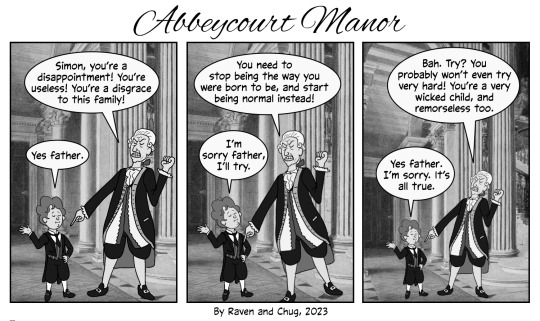
#Abbeycourt Manor#Powerup Comics#Flashback#Lord Throbwood#Daddy Issues#Abusive Father#Could this be why he is an asshole today?
22 notes
·
View notes
Text
It’s No-Contact November, folks!
For anyone looking for that final straw or excuse to go no-contact with their abusive, toxic, and/or manipulative family, just know that you’ve already given them nearly unlimited chances to fix the problem. They’ve already proven time and again they won’t change.
This was one of the hardest things for me when I cut my family off years ago. I kept giving them another chance to change. I kept telling my therapist I was just “waiting for an excuse” to cut them off, waiting for that final blowout, something so ridiculous that I felt truly justified in going no-contact. My therapist said, “they’ve already given you an excuse…over and over and over again.” It seems obvious, but I realized she was right. You don’t have to keep waiting for that final blowout to end all blowouts. You have more than enough evidence that they won’t change and you’re justified in protecting yourself.
I ended up quietly cutting them off. I didn’t wait for a holiday fight, I didn’t wait for the latest ridiculous blowout. I realized I’d been so unhappy for years because of what they continuously put me through, I didn’t need any more evidence. It’s been some 4+ years, I think. I honestly forget when I cut them off because it just…doesn’t hang over me anymore.
This holiday season, give yourself the gift of peace. You deserve to not be torn down, to not leave holiday dinners in tears.
#no contact and no guilt#no contact#toxic#toxic parents#abusive family#abusive mother#abusive parents#abusive father#no contact November
29 notes
·
View notes
Quote
Emotional abuse is the systematic diminishment of another. It is always a course of conduct, not a single event. It is designed to reduce a child's self-concept to the point where the victim considers himself unworthy — unworthy of respect, unworthy of friendship, unworthy of the natural birthright of all children: love and protection.
Emotional abuse can be verbal or behavioral, active or passive, frequent or occasional. Regardless, it is often as painful as physical assault. And, with rare exceptions, the pain lasts much longer.
Andrew Vachss
#emotional abuse#abusive parents#abusive mother#abusive father#child abuse#family problems#about#original post
170 notes
·
View notes
Text
There was a time, when as a young adult, I'd be reading self-help books, in order to see if I can do something to make my life livable. Sometimes, these books would go very deep into victim blaming, and making a person believe that they can just 'manifest anything', or 'make things happen', and later I trashed all of that nonsense, but as an inexperienced person, I was all up for magical thinking, and taking advice from people who enjoyed making everything a vague concept that one can control with their mind.
Some of these books indeed, touched on parenting, and their philosophy was that parents who are bad, are simply bad because their parents were bad, which is something they love to use as their favourite excuse (i had it worse). But as a young person, how was I to know this was stupid, I believed this. The book went on to encourage the child, to try and be the parent's replacement parent, and to offer them caretaking and parenting they never had in their youth. Now, if you know how child abuse works, you'd recognize this immediately as the encouragement of parentification, making the child responsible for the parent's well being, being the caretaker instead of being taken care of, taking responsibility for the parent's actions and behaviours when the child has absolutely no control or power over it - basically bad. But, how was I to know, right. So I decided to try and take this advice, and try to see; what are my parents lacking, in the form of having their own parents?
This is where things got funny; I analyzed my parents behaviour, and realized very quickly, that what they lack is moral compass, correction of intensely selfish, irresponsible, ignorant and shallow behaviour, and if these were my children I would simply not tolerate that level of malice. My parents weren't lacking in care, they were lacking in discipline. So at that point, I, who had no income, shelter, social power, access to resources, finances, or anything else, thought I was responsible for disciplining my parents and teaching them how to 'not be evil', if I wanted to change them in normal and good people. (Completely normal and possible thing to do.)
And it's not like I had any guidance in how to offer proper 'discipline', all I knew was violence, which I couldn't do for obvious reasons, and the next thing would be scolding, yelling, guilt-tripping, criticism, making them 'feel bad' for 'doing bad things'. And that's exactly what I had decided to do. Next time my father was acting selfish, malicious, shallow and self-obsessed, I dropped him a 'This is why you don't have any friends.' line.
Now I have no idea why, but this actually got to him. He was shocked for a moment, and then started acting defensive. 'I have friends!' he insisted, and then he started listing all of the coworkers he used for his gain in the last week. 'Those are not real friends.' I decided. That had actually gotten him upset. He started listing all the things he did with those people, which were just random work transactions, and it didn't convince me at all.
Looking back, it's funny because I was so low on his hierarchy of people whose opinion mattered, he tried to kill me multiple times, he screamed inhumane slurs and insults at me constantly, he considered me less than a person, less than a thing even, but he was still so offended that anyone in the world could think he had no friends. What I had done is made him worried that his facade and public image of being well-connected and liked wasn't strong enough, and convincing me that he was all those things, was how he thought he'd fix it. He didn't even think for a second that maybe he should fix his malicious and exploitative behaviour, it was all about maintaining an image of being something else.
Obviously he didn't have any friends, because he's a narcissist, and narcissists don't make friends, they keep prisoners. I was a constant thorn in his eye because I could see trough his delusions and would regularly call him out on that, which of course then brought on violence to make me terrified of contradicting him. Because that's how they think reality is generated, if they say something is true, and nobody contradicts them, then that must be the new reality.
Anyway, I didn't try to argue with him on friends again, because it got boring and did nothing to fix his inhumane behaviour, and I didn't like interacting with him anyway. But I still find it very funny that a book that was trying to push abused children into caretaking for their parents, pushed me into trying to punish them for abuse, it was almost Matilda-like in fashion. If I had magic powers I would have changed these people (into people too scared to be evil in front of me).
#story#abusive parents#bad self help books#mention of attempted murder#child abuse#magical thinking#parentification#abusive father#trying to discipline parents#only to find out you have zero power over them#and it doesn't work anyway
69 notes
·
View notes
Text
okay. i finally found something on parents love bombing that is not ableist against cluster B's or encouraging parents to love bomb. it's in the form of a comment on this reddit post from 6 years ago. here's the comment, from u/Glaucus92:
Lovebombing is part of the cycle of abuse. The cycle you'll usually find is this one:
Calm -> Tension building -> Incident -> Reconcilliation -> Calm
Lovebombing is part of the "Reconcilliation" part. After an incident, a victim will usually try to confront, give consequences to, or withdraw form the abuser. In order to keep the victim close, to keep power over them, an abuser may lovebomb their victim. It is not linked to a specifc role in an abisive dynamic. It is a technique used by abuser as a reaction to 'losing' a victim.
The abuser will (attempt to) be the person you always wanted them to be. That can be the parent that listens to you when you talk about your interest. It can be that they tell you how proud they are of you, how they've always been proud, etc. It can be that they buy you gifts or give you money. This behaviour isn't exclusive to abusive parents either; think of how an abusive spouse might organize a wonderful date or get an expensive gift for their victims.
The goal of the lovebombing is to give you a little taste of what you usually never get from them, be it attention, financial aid, praise, compliments, whatever. By giving you that tiny bit, they are basically pretending that they can be this nice, loving parent. The underlying unspoken message of course being that things could be like this, if only you tried harder, or weren't like x, or were more like y. Because without the realization that they are abusive, it doesn't make sense for them to purposefully hurt you and then be really nice to you.
Lovebombing insipres false hope that if only you could be better, the abuser wouldn't be abusive. It also helps wiht the gaslighting; when they do all these nice things for you in that moment, you might think that you over-exagerated the previous abuse. It's usually only when you look back and realise that all these 'nice' things only happened when you were upset with them or withdrew from them.
Since you asked for examples:
A parent who is usually very disinterested in your life suddenly makes a lot of effort to discuss you hobbies with you.
A parent might start to give you a lot of compliments all of a sudden, or tell stories about how they've told others about how amazing you are.
Parents might give you gifts for no reason. Stating that they just wanted to be nice, or just thought of you when they saw it.
They might start calling or visiting a lot, especially when they previously didn't. Saying things about how much they miss you.
Trying to harken back to 'the good old days'. Sending you pictures of happy childhood memories or recounting old stories.
It might be straight up bribery. A conflict happens, and after the intial blow up you are given cash/money to buy something nice or becasue they ust want to help.
A parent might try to smooth things over by taking you to a place or on a trip you wanted to go to.
I know some of these might sound like perfectly normal things, and they would be coming from non-abusive people. It becomes an abusive tactic when it happens more often than not (or in greater intesity) after a conflict has occured. It also almost always happens in lieu of an actual apology. By lovebombing instead of apologizing, the abuser doesn't have to take responisbility for their action. The unspoken agreement that governs this is that by accepting the gift/loveboming, the victim doesn't hold the abuser accountable.
#softspoonie#abusive parents#abusive parent#abusive father#abuse#emotional abuse#love bombing#lovebombing#abuse survivor#cycle of abuse#verbal abuse#psychological abuse#gaslighting#manipulation#mental health#trauma#trauma survivor#trauma survival#abuse survival#abusive relationship#abusive#abusiveness#mental abuse#trauma awareness#mental health awareness
102 notes
·
View notes
Text
Lmao so funny story, I found history searches on my fathers devices about *cyanide* and “easily obtainable poisons” and *I hate women/I hate my wife and kids/abuser/misogynistic related things* also chemsee sells test kits for not too expensive amounts. Also, just keeping these posts as a reminder that my father (and brother) tried to poison me since I was a minor, so it doesn’t get lost.
#my text#true crime#poisoning#poisons#abusive father#abusive parents#parental abuse#tw#actuallyabused#sibling abuse#confessions of an abuser#confession#actuallytraumatized#complex ptsd#abuser mention#tw murder mention#tw attempted murder#murder mention tw#attempted murder#tw true crime#personal trauma stories#abusive brother#abusive sibling#not funny just being sarcastic like I usually always am about everything#abusers are dumb like if I died from being poisoned slowly over the course of years…#wouldn’t the police be able to find old history searches on his devices? and his hatred toward women? like yeah I’d think possibly so
12 notes
·
View notes
Photo

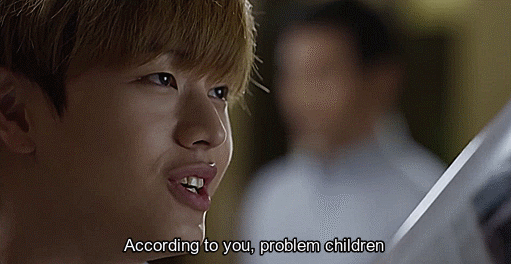

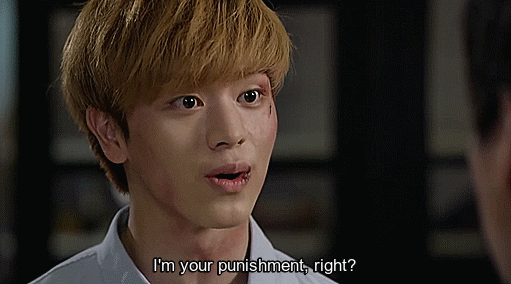
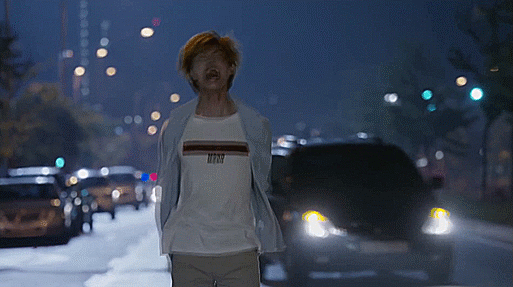
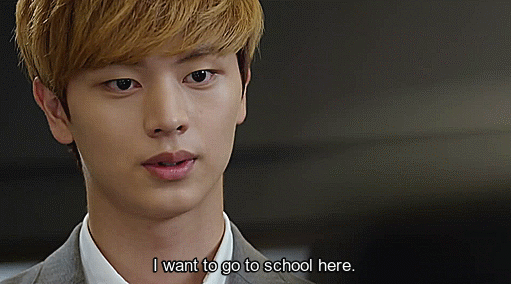

Who Are You: School 2015
Tae Kwang’s father being emotionally (and physically) abusive
#who are you school 2015#kdrama#abusive father#physical abuse#emotional abuse#emotional breakdown#crying#pained screaming#tw abuse#tw child abuse#yook sungjae#whump#kwhump#asian whump
43 notes
·
View notes
Text
I had to get good at dad jokes.
Because my father wasn’t good at being one.
8 notes
·
View notes
Text
due to my father i’m evil now
#deadbeat dad#dysfunctional family#oedipus complex#electra complex#daddy issues#mommy issues#revenge#narcissistic dad#toxic people#toxic household#toxic parents#toxic father#abusive stepfather#abusive father#psycho
11 notes
·
View notes